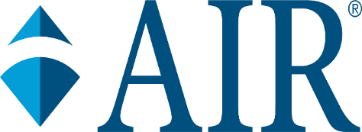Cape-y Csg
Department of Labor Generic Clearance for the Collection of Qualitative Feedback on Agency Service Delivery
CAPE-Y CSG and Partners Interview
OMB: 1225-0088

OMB Control Number: 1225-0088
OMB Expiration Date: 1/31/24
Public reporting burden for this interview is estimated to average 45 minutes per response. The burden estimate includes the time for reviewing instructions, searching existing data sources, gathering and maintaining the data needed, and completing and submitting the interview. This collection of information is voluntary. You are not required to respond to this collection of information unless it displays a valid OMB control number. Please send comments regarding the burden estimate or any other aspect of this collection of information to the Office of Disability Employment Policy, Department of Labor, 200 Constitution Ave., NW, S-1313, Washington, DC 20210 or [email protected] and reference OMB control number [1225-0088]. NOTE: Please do not send your completed interview to this address.
CAPE-Youth Evaluation
CSG Staff and Partners
Interview Protocol
Thank you for taking the time today to participate in this conversation. My name is ___________, I’m with the American Institutes for Research (AIR), a nonprofit and nonpartisan social and behavioral science research organization. The Council of State Governments has contracted with AIR to conduct an evaluation of the Center for Advancing Policy on Employment for Youth (CAPE-Youth). For this interview, we are interested in learning about CAPE-Youth services and supports to increase the capacity of workforce systems to support the development of policies to promote the employment of youth and young adults with disabilities.
This conversation should take about 45 minutes. There are no risks to you for taking part in this interview. The information you share can help CAPE-Youth improve its services and resources designed to support youth and young adults with disabilities.
To protect your privacy, your responses shared today will remain confidential and no one’s name will be attributed to any information used in reports or presentations. At any time during our conversation, you can let me know if you have any questions or if you would rather not answer any specific question. You can also stop the interview at any time for any reason.
With your permission, we would also like to record our conversation. Doing so is only to ensure the accuracy of my notes, and you can ask me to turn off the recorder at any point. No one outside of the AIR project team will hear or have access to the recording, and data we collect for this evaluation will be stored in a secure location. At the end of the project, we will delete all files and shred any paper records. Do we have your permission to record?
INTERVIEWER – Ask for verbal consent from the participant.
Do you have any questions before I begin recording?
Begin recording if no questions.
Background
We’ll start with a background question about your role in CAPE-Youth.
How do you support or inform the work of CAPE-Youth?
Probe:
How long have you been in this role?
Information Dissemination
What processes does CAPE-Youth use to identify new or innovative policies, practices, strategies, or approaches intended to expand or improve employment opportunities for youth and young adults with disabilities?
Probe:
How are policies, practices, strategies, or approaches vetted as new or innovative?
What factors support the identification and vetting of policies, practices, strategies, or approaches?
Probe:
What factors hinder the identification and vetting of policies, practices, strategies, or approaches?
Once identified and vetted, how does CAPE-Youth share information about new or innovative policies, practices, strategies, or approaches with key constituents (such as state policymakers)?
Probe:
What are the main mechanisms for sharing information?
How could CAPE-Youth improve the way it shares information about new or innovative policies, practices, strategies, or approaches with key constituents?
Technical Assistance
Describe CAPE-Youth’s process for planning and delivering technical assistance to states.
Probes:
What factors support the planning and delivery of technical assistance?
What factors make the planning and delivery of technical assistance challenging?
Can you tell me about any particularly successful technical assistance events?
Probes:
Why were they so successful?
Are there certain characteristics of states that lay the foundation for a more successful TA experience or outcome? (i.e., readiness, commitment, partners, resources)
How could technical assistance from CAPE-Youth be improved?
Partnerships and Collaboration
How do CAPE-Youth partners work together to ensure center objectives and goals are met?
Probes:
To what extent are roles and responsibilities among partners clearly defined?
To what extent would you say CAPE-Youth partners share a common vision for the work?
What factors support collaboration among CAPE-Youth partners?
Probe:
What factors make collaboration among CAPE-Youth partners more challenging?
What strategies or resources has CAPE-Youth developed to foster collaboration among organizations and agencies serving youth and young adults with disabilities?
What factors support the work CAPE-Youth does to foster and support collaboration among youth-serving entities?
Probe:
What factors hinder the work CAPE-Youth does to foster and support collaboration among youth-serving entities?
Can you tell me about any particularly successful collaboration among organizations and agencies supported by CAPE-Youth?
Probes:
Why was it successful?
What was CAPE-Youth’s role?
Continuous Improvement
How does CAPE-Youth foster the continuous improvement of its services and resources?
Probe:
Are there any systems or processes in place to collect and use feedback or other data to improve CAPE-Youth services and resources?
Perceived Benefits
Describe how you think CAPE-Youth’s work has impacted or benefited:
State policies about employment for youth and young adults with disabilities
Youth-serving organizations or agencies
Practices of youth-serving professionals
Youth and young adults with disabilities
Thank you so much for your time and sharing your perspectives!
| File Type | application/vnd.openxmlformats-officedocument.wordprocessingml.document |
| Author | Wilson, Emma |
| File Modified | 0000-00-00 |
| File Created | 2024-07-31 |
© 2026 OMB.report | Privacy Policy
